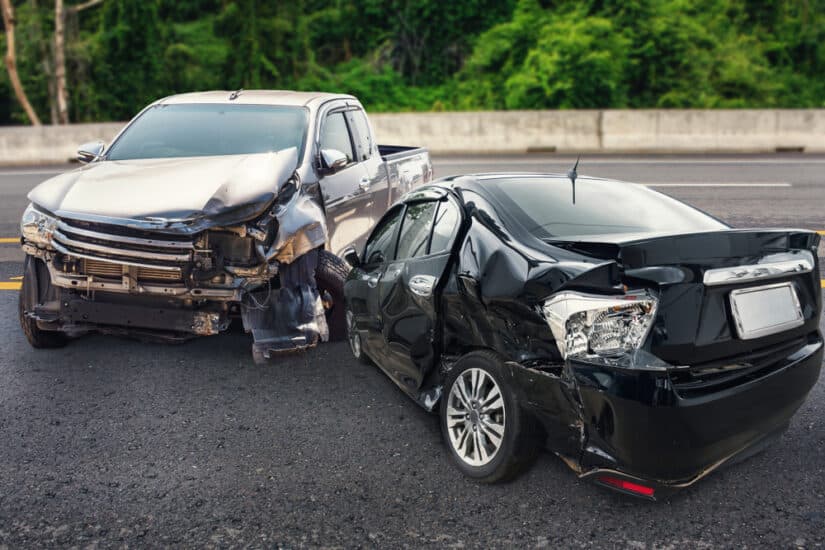
When it comes to car accidents, silence isn’t golden. Failing to report an accident to your insurance company can have serious repercussions. In this blog post, we will discuss the potential consequences of not reporting a car accident to your insurance and how it can impact your claim.
Discover the potential consequences of not reporting a car accident to your insurance. Learn about the legal obligations, impacts on insurance coverage, and how The Law Offices of Rosenstock and Azran can help you with your claim.
Importance of Reporting a Car Accident to Your Insurance Company
When you’re involved in a car accident, promptly reporting it to your insurance company is crucial. Here’s why:
#1 Preservation of Rights: By promptly reporting the accident, you preserve your right to seek compensation for damages and injuries sustained.
#2 Legal Compliance: Failure to report may result in legal consequences or violations of your insurance policy terms.
#3 Timely Assistance: Reporting allows your insurance company to provide timely assistance, including arranging for repairs, medical assistance, and legal representation if necessary.
Legal Obligations and Requirements for Reporting Car Accidents
California law mandates reporting certain car accidents to the authorities. Here’s the need-to-know:
- Reporting to the Police: If the accident results in injury, death, or property damage exceeding $1,000, you must file a car accident report with the California Highway Patrol (CHP) or local police within 24 hours.
- Reporting to the DMV: For accidents with injuries, fatalities, or property damage over $1,000, a separate SR-1 form must be submitted to the Department of Motor Vehicles (DMV) within 10 days.
Meeting these deadlines protects you legally and avoids penalties like fines or license suspension.
Possible Consequences of Not Reporting a Car Accident
There are many misconceptions that:
- Minor vehicle accidents and damage don’t require reporting
- No injuries mean no reporting is needed
- Personal agreements are sufficient
- Reporting leads to higher premiums
- Delayed reporting is acceptable
The truth is, that all accidents, regardless of the severity of damage or injuries, should be reported to your insurance company.
Here are the potential consequences when you fail to report a car accident to your insurance:
Contract Breach and Coverage Denial
Your insurance policy likely mandates reporting accidents within a specific timeframe. Failing to do so is considered a breach of contract. This gives your insurer the green light to deny your claim entirely, even if you weren’t at fault. Imagine the financial burden if you’re suddenly responsible for repairs, medical bills, or lost wages!
The Uninsured Driver Nightmare
California has a high number of uninsured drivers. If the at-fault driver lacks insurance and you haven’t reported the accident, you’re personally responsible for their repairs and injuries. Reporting to your insurer protects you. California law requires insurers to offer uninsured motorist (UM) coverage, which kicks in to cover these costs, protecting you from financial ruin.
Premium Hikes and Legal Issues
Some insurance companies view a lack of accident reporting as a sign of increased risk. This translates to higher premiums when it comes time to renew your policy. Additionally, depending on the severity of the accident, not reporting could be considered a violation, leading to fines or even a suspended license.
Reporting an accident to your insurance company, regardless of how minor it seems, is the smart move. Case studies show situations where policyholders failed to report accidents, leading to consequences even for a minor accident.
Steps to Take After a Car Accident to Protect Your Rights
Have you been involved in a car crash? Here’s what to do to safeguard your rights:
#1 Check for Injuries: Ensure everyone involved is okay. Call emergency services if needed.
#2 Secure the Scene: Move your car to safety if possible. Turn on hazard lights and use cones or flares to warn others.
#3 Exchange Information: Get the names, contact details, driver’s license numbers, and information about the other driver’s insurance company.
#4 Document Everything: Take photos of the damage to all vehicles, the surrounding area, and any visible injuries. Note weather conditions and road hazards.
#5 Report the Accident: File a police report, even for a minor car accident. Then, notify your insurance company as soon as possible.

#6 Seek Medical Attention: Get a check-up, even if you feel okay. Injuries can appear later.
#7 Don’t Admit Fault: Avoid apologizing or taking blame for the accident. Stick to the facts of what happened.
#8 Consult an Attorney: Consider talking to an experienced car accident attorney for expert guidance.
How a Car Accident Attorney Can Assist
Dealing with insurance claims after an accident can be overwhelming. Here’s where a car accident lawyer steps in. They help in:
Building a Strong Case: Attorneys gather evidence, interview witnesses, and reconstruct the accident scene. This strengthens your case and ensures you receive fair compensation.
Negotiation Skills: Lawyers negotiate with insurance companies on your behalf. They aim to secure the maximum settlement, considering medical expenses, property damage, lost wages, and pain and suffering.
Legal Representation: In the event of a dispute or denied car insurance claim, your attorney will provide strong legal representation, advocating for your rights in court if necessary, and ensuring you receive the compensation you deserve.
Want help with insurance claims? The Law Offices of Rosenstock and Azran are here to help. With decades of experience and a proven track record of success in Reseda, Canoga Park, Van Nuys, and North Hollywood, CA, our attorneys will fight tirelessly to protect your rights and ensure you receive the compensation you deserve. Contact us today for a free consultation.










